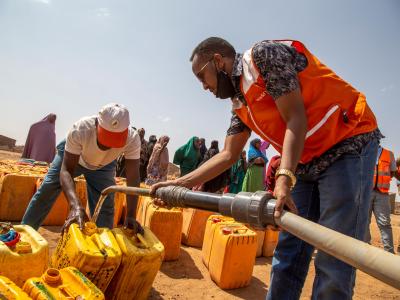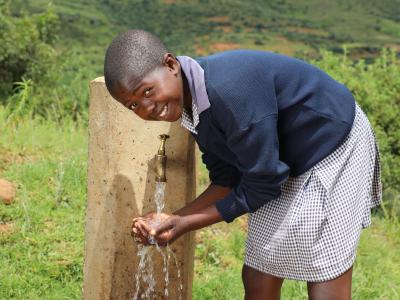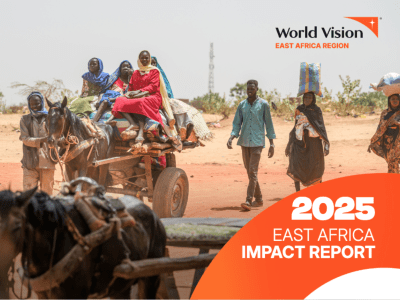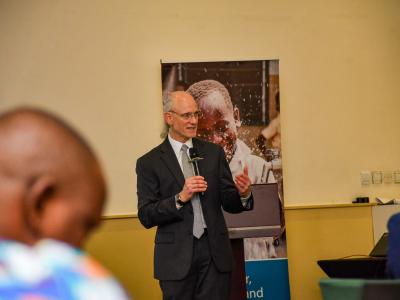publication / February 26, 2026
Water Sanitation and Hygiene Capacity statement
Our presence in Somalia since 1993 has enabled us to establish and maintain strong relationships with key stakeholders in the WASH sector. This includes the Ministry of Energy and Water Resources (MoEWR), a crucial partner, as well as other line ministries at federal, regional and state levels, the private sector, local partners, the Somalia WASH Cluster, UN agencies, and community actors.
The sector’s model seamlessly integrates with other sectors to contribute to child wellbeing outcomes
•WASH and health & nutrition
•WASH and livelihoods
•WASH and education
•WASH and child protection & participation
Our WASH sector is led by a multidisciplinary team of professional civil and water engineers, sanitation and hygiene specialists, M&E experts, and GIS specialists, collectively driving the sector’s vision and strategic objective
article / February 19, 2026
From Fear to Dignity: How Access to Clean Water and Safe Sanitation Transformed Senate’s Life
Access to clean water and safe sanitation through World Vision’s WASH program transformed Senate’s health, safety, and everyday wellbeing.
article / February 26, 2026
A Brighter Path: How Improved WASH Enriched Yanern’s World
A Brighter Path: How Improved WASH Enriched Yanern’s World
article / February 26, 2026
Hope at Last: Water for Life Project Delivers Safe Water to Jang Community
For decades, the children and families of Jang—a farming community in the Sawla-Tuna-Kalba District of the Savannah Region—struggled with limited access to clean water, relying on unsafe sources that exposed them to waterborne diseases and daily hardship. Change came when World Vision Ghana and partner GIZ provided a solar-powered mechanised water system.
press release / February 11, 2026
Urgent Call Launched to Ensure Access to Safe Water, Sanitation, and Hygiene to Save the Lives of Thousands of Children
Press release highlighting Aqua nexus a plan to expand access to clean water for vulnerable families in Latin America and the Caribbean
publication / February 23, 2026
World Vision East Africa Impact Report 2025
Despite escalating conflict, climate shocks, economic instability and widespread displacement, we reached over 26 million people, including 16.4 million children
article / February 23, 2026
World Vision Ghana Share Findings of the Ghana Water Quality Study to Stakeholders
World Vision Ghana shares key findings from the Ghana Water Quality Study with stakeholders, highlighting evidence on lead-free water systems, improved water safety, and collaborative efforts to ensure safe drinking water across communities.



